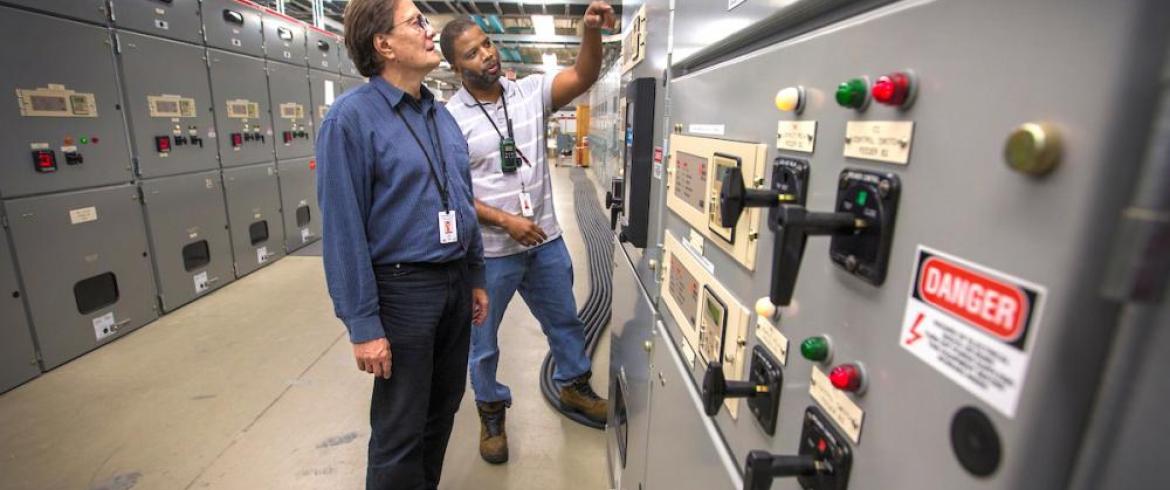
The Center for Advanced Power Systems (CAPS) at Florida State University has received a new $31 million contract from the Naval Sea Systems Command for the research and development associated with shipboard electrical power and energy systems. The center is closely associated with the FAMU-FSU College of Engineering.
“My team and I are extremely excited about the new contract from NAVSEA,” said Michael “Mischa” Steurer, the FSU principal investigator of the contract and researcher at the college. “It is a great testament to the quality of our work and the credibility of our team in the community. We have the opportunity to make a tangible impact for the Navy’s fleet and the taxpayers as our methods are aimed at lowering risk in the research and development cycles of advanced power and energy technologies necessary to provide ships the capabilities they need in the future.”
As part of the new contract, CAPS researchers and their partners at the University of Wisconsin-Milwaukee, University of South Carolina, University of Alabama, and the University of Texas at Arlington will develop approaches to incorporate advanced modeling and simulation techniques into the Navy’s overarching strategy to adopt a comprehensive digital engineering paradigm in the future.
This work includes further improving a real-time, simulation-based testing and evaluation system and merge it with compatible controller hardware simulation methods. CAPS researchers also will have the support of faculty from the newly established systems engineering program at the FSU Panama City campus (operated through the FAMU-FSU College of Engineering) as they help integrate their work with the Navy’s overarching model-based systems framework.
“This contract is a great show of faith from NAVSEA about the quality of work that CAPS has provided for them in the past and will continue to do so in the future,” said CAPS Director Roger McGinnis. “The team here has done a tremendous job in working with the Navy over the past two decades, and we are thrilled to continue that partnership.”
Over the past 20 years, CAPS has established itself as one of the primary centers for research and development in the area of advanced power and energy systems worldwide. CAPS not only supports the ever-increasing need by the U.S. Navy to advance technologies on ships but contributes equally to research of land systems to support integration of renewable energy sources in terrestrial power systems.
This new contract is an expansion of the work previously funded by NAVSEA over the past seven years. As a result of that work, CAPS became the first university test site accredited by the U.S. Navy to perform power hardware simulation-based testing of next-generation shipboard power technology.
In addition to the new contract from NAVSEA, CAPS has received additional funds over the past year to support their work.
In January, the Office of Naval Research provided FSU with a $30 million, five-year grant to continue its work with the Electric Research and Development Consortium. CAPS leads a group that includes Massachusetts Institute of Technology, Purdue University, University of Texas at Austin, University of South Carolina, Mississippi State University and Virginia Tech.
The Office of Naval Research also provided CAPS with $10 million in special funding to update facilities and technologies to meet the challenges of the next decade. Several items have already been upgraded, while other systems used in high-electric fields and power hardware in the loop research will likely be finished by the end of 2021.
“The work CAPS has done in partnership with the Navy and other universities is quite remarkable,” said Interim Vice President for Research Laurel Fulkerson. “We are so pleased that the Navy appreciates the dedication of the team at FSU as well as the quality of their work. Their work in this area in unparalleled.”
